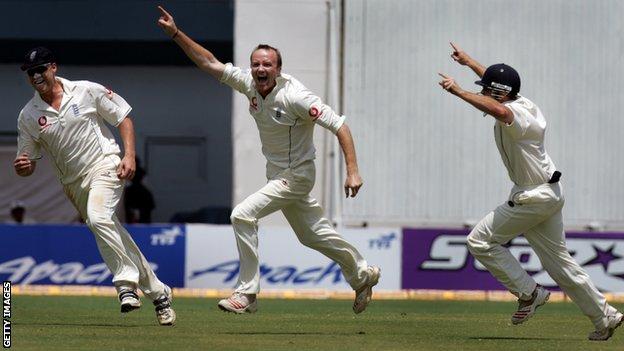[ad_1]

Shaun Udal woke up in the back of an ambulance.
The former England spinner had fallen down a flight of 16 stairs at his office, and was now being hurried to hospital in a neck brace, his clothes cut away by paramedics who needed to work on his body.
Udal had not been feeling well for a number of years. He had begun to lose dexterity in some of his fingers and was struggling to tie his shoelaces.
His neck was in pain and it had been suggested his issues might be connected to an operation he had in the area several years previously.
But six weeks after his hospitalisation a perfunctory letter arrived in the post informing him the symptoms he had been experiencing suggested the onset of Parkinson’s disease, a progressive neurological condition for which there is currently no cure.
He was one month short of his 50th birthday.
The first few months were tough for Udal as he sought to confirm his diagnosis and come to terms with the new path ahead of him.
“When you have your first bad night, you just wake up and think ‘I just can’t get out of bed, I can’t move properly, I’m stuck’,” said the ex-Hampshire and Middlesex bowler, who was speaking to BBC Sport before Thursday’s World Parkinson’s Day.
“I’m going to the loo and I’m falling over on my back, my balance is bad, I can’t do my buttons up, can’t do a tie – those things that are basically simple things.
“It’s not very nice to people that you live with, because when you’ve got your frustrations you take it out on the people that are closest to you.”
An off-break bowler, Udal took 1,330 wickets in a senior career lasting 21 years, but having made 10 one-day international appearances for England in the mid-’90s, further international honours eluded him for ten years.
However, his performances in a Shane Warne-led Hampshire side in 2005 led to call-ups for tours of Pakistan and India.
He made his Test debut in Multan at the age of 36, and five appearances for England that winter, taking 4-14 in the final innings in Mumbai to help his side to a series-equalling victory.
Warne’s death in 2022 was one of a number of losses Udal experienced close to the time of his diagnosis, as both his parents passed away over the course of 18 months.
He also saw crucial muscle therapies suspended during the Covid pandemic.
“All four things came along,” said Udal. “It just seems like the world’s against you, but you’ve got to come through the other side. There were some really tough and dark days.
“You do sit there sometimes and think ‘why me?’ – which is natural, and you can’t help those feelings. But as you’ve had it for longer you get used to what’s happened and therefore your bad days don’t feel quite as bad, because you’ve been through it before.
“You’ve got to make the most of every good day. And some days there are bad days, which is really hard to take, but the people around you do suffer as well – you’ve got to have a strong network and try to have a positive mindset.”
Part of his support comes from his continuing involvement in sport.
Now aged 55 and five years on from his diagnosis, remaining active is a crucial part of Udal’s life.
“I’ve raised some money for Sport Parkinson’s, who are trying to help people by continuing to play sport,” he said. “Walking football, golf days, table tennis is very good for you because you keep everything moving.
“Anything that you can do to keep as active as you possibly can, to stop the muscles from seizing up is the secret to it all.
“I do play golf. I struggle to play 18 [holes] if I have to carry clubs. I have to have a motorised buggy if I can get it, but while I’m fit and able to carry on doing so, I’ll continue to do so as much as I can.”
Listen to the entire Test Match Special podcast with Daniel Norcross on BBC Sounds.
If you are affected by any of the issues raised in this article you can visit the BBC Action Line, the BBC’s information and support service, here.


[ad_2]
Source link
